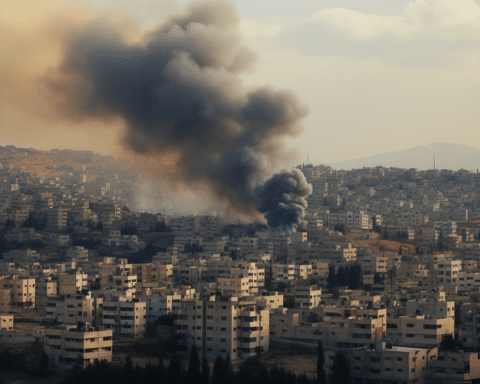Israel has launched a series of airstrikes across Syria while advancing into a buffer zone, igniting tensions in a region already battered by years of conflict. Despite reports of Israeli forces nearing Damascus, Israeli officials deny any such movement. As the dust settles after the overthrow of Bashar Assad, the world watches closely, wondering what lies ahead for Syria and the Middle East.
Airstrikes and Advancements: A Region on Edge
The Syrian Observatory for Human Rights reported that Israel carried out over 300 airstrikes since rebel forces toppled Assad. The strikes targeted chemical weapons facilities and military assets, aiming to prevent extremists from obtaining dangerous weapons.
Lt. Col. Nadav Shoshani, an Israeli military spokesperson, refuted claims of advancing toward Damascus. “The reports circulating in the media about the alleged advancement of Israeli tanks towards Damascus are false,” he asserted. However, Israeli media confirmed the extensive destruction of Syria’s military infrastructure. “Dozens upon dozens of targets…have been hit in waves of attacks,” wrote Yossi Yehoshua, a military correspondent for Yediot Ahronot.
Life in Damascus: A Glimpse of Normalcy
Amid the chaos, Damascus is attempting to regain a sense of normalcy. Markets and banks have reopened, signaling hope for stability. “Damascus is more beautiful now,” said Maysoun Qurabi, a shopper in the Hamidiyeh market. “It has a soul, and people feel at ease and secure.”
At Bakdash, a well-known ice cream shop, a poster read, “Welcome to the rebels of free Syria. Long live free Syria,” reflecting the optimism of a new era.
International Condemnation and Controversy
Israel’s actions have drawn sharp criticism from neighboring nations. Egypt, Jordan, and Saudi Arabia condemned the incursion, calling it a violation of international law. Turkey’s Foreign Ministry accused Israel of “displaying a mentality of an occupier.” Meanwhile, the United Nations called for adherence to the 1974 disengagement agreement, emphasizing that peace and stability in Syria are at a critical juncture.
The Road Ahead for Syria
The fall of Assad marks the end of a decades-long regime, but the future remains uncertain. Sadi Ahmad, a bank manager in Damascus, expressed cautious optimism: “All my employees returned to work. This is a step toward rebuilding.” However, concerns over potential extremist control and the implications of Israel’s actions weigh heavily.
As Syria faces monumental change, the balance of power in the Middle East continues to shift. The international community must navigate a delicate path to ensure peace, security, and stability for a nation yearning for a brighter future.





